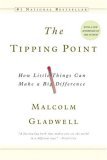As you may or may not recall, I had ordered a 2009 Ford Escape Hybrid from my local dealer back in April, but it never arrived. Ford instead randomly selected 5 people from the 50 who had placed orders with the dealer, rather than taking names in order (we were the first on the list). At any rate, we've had a change of mind on the subject, and here's why.
1) Monthly Cost: By buying a Ford Escape instead of an Escape Hybrid, we're paying about $265/month less over 60 months. At $5/gal, that would be 53 gallons of gas per MONTH that I'd have to use in the non-hybrid in order to break even. That would be a lot of driving, and we simply do not plan to use this vehicle as our primary around-town car. (I recall doing a post on this a while back, but I can't find it now. Maybe someone will remember my chart and its associated post.)
2) Sticker Cost: We looked at a couple used Escape Hybrids at the dealer on Saturday before settling on the non-hybrid choice. The dealer is paying more than the original sticker price to bring these things into the region, where demand is through the roof. A used 2008 Escape Hybrid with nearly 15k miles was stickered at $35k and there would be no budging on that price. A slightly more appointed 2008 Escape Hybrid on the lot with around 25k miles was listed for even more. MSRP on these would have been in the $30-34k range a 12-18 months ago.
3) Total Cost of Ownership: I learned that for new Ford vehicles you can buy a maintenance plan up front that covers all regularly scheduled maintenance for x years up to y miles. In my case, $1390 gives me 6 years or 97,500 miles, which covers oil changes, brake jobs, transmission service, tire rotation/balance, power steering service, etc, etc, etc. Considering I spent about $800 this year alone on my Civic for the 50k miles service, I see a lot of value in that package. Ford has offered this service as a relatively cheap way to increase customer satisfaction and, ultimately, customer retention. At the same time, it lowers my TCO.

